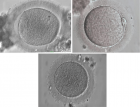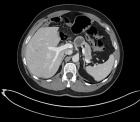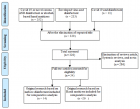Abstract
Research Article
Chronic Kidney Disease: A single day screening on World Kidney Day for five consecutive years
Rai Pradeep K*, Rai Punam and Bedi Sonam
Published: 12 March, 2019 | Volume 3 - Issue 1 | Pages: 046-054
Introduction: Chronic kidney disease is a costly and burdensome public health concern. Delayed recognition and treatment of CKD may predispose patients to unfavorable future outcomes and burden the healthcare services. The early detection of disease via screening programs is widely recommended. The present study is a hospital camp-based screening for detecting patients with chronic kidney disease in Varanasi from 2014-18.
Methods: The study subjects constituted 436 apparently healthy adults (age ≥18 years) of Varanasi. Information on socio-demographic profile, personal characteristics and clinical investigations were recorded. Stepwise binary logistic regression analysis was applied to find the significant predictors of chronic kidney disease.
Results: Median age of the study subjects was 40.5 years. There were 39.7% males and 60.3% females. Chronic kidney disease was found in 23.9% subjects. Underweight, diabetes mellitus, hypertension, smoking status and higher creatinine levels came out as significant predictors of chronic kidney disease.
Conclusion: We screened apparently healthy individuals and found very high percentages of chronic kidney disease and its predictors. Henceforth, understanding the preventable and modifiable risk factors of chronic kidney disease becomes a prerequisite to intervene before risk populations reaches to irreversible stages of adverse future outcomes.
Read Full Article HTML DOI: 10.29328/journal.jcn.1001025 Cite this Article Read Full Article PDF
Keywords:
Chronic kidney disease; Serum creatinine; Albuminuria; Hypertension; Diabetes mellitus; Smoking
References
- Everett B, Castel LD, McGinnis M, Beresky A, Cane RC Jr, et al. Economic and Clinical Outcomes Resulting From the Stage 4 Chronic Kidney Disease Case Management Quality Improvement Initiative. Prof Case Manag. 2017; 22: 291. Ref.: https://goo.gl/joWb7W
- Ojo A. Addressing the Global Burden of Chronic Kidney Disease through Clinical and Translational Research. Trans Am Clin Climatol Assoc. 2014; 125: 229-243. Ref.: https://goo.gl/6DzNKh
- Mendelssohn DC. Coping with the CKD Epidemic: The Promise of Multidisciplinary Team-Based Care. Nephrol Dial Transplant. 2005; 20: 10–12. Ref.: https://goo.gl/W3r8bm
- Levey AS, Bosch JP, Lewis JB, Greene T, Rogers N, et al. A More Accurate Method to Estimate Glomerular Filtration Rate from Serum Creatinine: A New Prediction Equation. Ann Intern Med. 1999; 130: 461–70. Ref.: https://goo.gl/MdkXrh
- Ulasi II, Ijoma CK, Onodugo OD, Arodiwe EB, Ifebunandu NA, et al. 2013. Towards Prevention of Chronic Kidney Disease in Nigeria: A Community-Based Study in Southeast Nigeria. Kidney International Supplements. 2017; 3: 195–201. Ref.: https://goo.gl/CRpz9b
- Ketteler M, Block GA, Evenepoel P, Fukagawa M, Herzog CA, et al. Executive Summary of the 2017 KDIGO Chronic Kidney Disease–Mineral and Bone Disorder (CKD-MBD) Guideline Update: What’s Changed and Why It Matters. Kidney Int. 2017; 92: 26–36. Ref.: https://goo.gl/RfKNHH
- Neuen BL, Chadban SJ, Demaio AR, Johnson DW, Perkovic V. Chronic Kidney Disease and the Global NCDs Agenda. BMJ Glob Health. 2017; 2: e000380. Ref.: https://goo.gl/z3ZfYW
- Wang H, Naghavi M, Allen C, Barber RM, Bhutta ZA, et al. Global, Regional, and National Life Expectancy, All-Cause Mortality, and Cause-Specific Mortality for 249 Causes of Death, 1980–2015: A Systematic Analysis for the Global Burden of Disease Study 2015. The Lancet. 2016; 388: 1459–1544. Ref.: https://goo.gl/86Yu6C
- Agarwal SK, Dash SC, Irshad M, Raju S, Singh R, et al. Prevalence of Chronic Renal Failure in Adults in Delhi, India. Nephrol Dial Transplant. 2005; 20: 1638–1642. Ref.: https://goo.gl/zkKD9D
- Haroun MK, Jaar BG, Hoffman SC, Comstock GW, Klag MJ, et al. Risk Factors for Chronic Kidney Disease: A Prospective Study of 23,534 Men and Women in Washington County, Maryland. J Am Soc Nephrol. 2003; 14: 2934–2941. Ref.: https://goo.gl/hc9Qbd
- Ležaić V, Bajčetić S, Peruničić-Peković G, Bukvić D, Dimković N, et al. Screening of Elderly for Chronic Kidney Disease. Kidney Blood Press Res. 2012; 35: 497–503. Ref.: https://goo.gl/FqrKTX
- Modi GKVM, Jha V. The Incidence of End-Stage Renal Disease in India: A Population-Based Study. Kidney int. 2006; 70: 2131–2133. Ref.: https://goo.gl/bMGC4K
- Rai PK, Rai P, Bedi S. Prevalence and Risk Factors of Chronic Kidney Disease: A Single Day Screening on World Kidney Day for Four Consecutive Years in Varanasi. Urology & Nephrology Open Access Journal. 2018; 6: 167–171. Ref.: https://goo.gl/3TqPQe
- Rai PK, Jindal PK, Rai P, Rai PK, Rai SN, et al. Screening of Chronic Kidney Disease (CKD) in General Population on World Kidney Day on Three Consecutive Years: A Single Day Data. Int J Med Public health. 2014; 4: 167-170. Ref.: https://goo.gl/8ixfzs
- Singh AK, Farag YM, Mittal BV, Subramanian KK, Reddy SR, et al. Epidemiology and Risk Factors of Chronic Kidney Disease in India–results from the SEEK (Screening and Early Evaluation of Kidney Disease) Study. BMC nephrology. 2013; 14: 114. Ref.: https://goo.gl/Q3WhJ4
- Hill NR, Fatoba ST, Oke JL, Hirst JA, O'Callaghan CA, et al. Global Prevalence of Chronic Kidney Disease–a Systematic Review and Meta-Analysis. PloS One. 2016; 11: e0158765. Ref.: https://goo.gl/7ph4Jy
- Varma PP. Prevalence of Chronic Kidney Disease in India-Where Are We Heading? Indian J Nephrol. 2015; 25: 133-135. Ref.: https://goo.gl/fwdfDs
- Levey AS, Eckardt KU, Tsukamoto Y, Levin A, Coresh J, et al. Definition and Classification of Chronic Kidney Disease: A Position Statement from Kidney Disease: Improving Global Outcomes (KDIGO). Kidney Int. 2005; 67: 2089–2100. Ref.: https://goo.gl/HEvXdc
- Sherwood M, McCullough PA. Chronic Kidney Disease from Screening, Detection, and Awareness, to Prevention. Lancet Glob Health. 2016; 4: e288–289. Ref.: https://goo.gl/tr7TU2
- WebsterAC, Nagler EV, Morton RL, Masson P. Chronic Kidney Disease. The Lancet. 2017; 389(10075): 1238–1252. Ref.: https://goo.gl/b8225L
- KazancioğluR. Risk Factors for Chronic Kidney Disease: An Update. Kidney Int Suppl. 2013; 3: 368–371. Ref.: https://goo.gl/2dMuVf
- Yacoub R, Habib H, Lahdo A, Al Ali R, Varjabedian L, et al. Association between Smoking and Chronic Kidney Disease: A Case Control Study. BMC Public Health. 2010; 10: 731. Ref.: https://goo.gl/Ca8KPU
- Orth SR. Smoking and the Kidney. JASN. 2002; 13: 1663–1672. Ref.: https://goo.gl/bDTt93
- Baumgarten M, Gehr T. Chronic Kidney Disease: Detection and Evaluation. American Family Physician. 2011; 84: 1138-1148. Ref.: https://goo.gl/BgUr8M
- Woodhouse S, Batten W, Hendrick H, Malek PA. The Glomerular Filtration Rate: An Important Test for Diagnosis, Staging, and Treatment of Chronic Kidney Disease. Laboratory Medicine. 2015; 37: 244–246. Ref.: https://goo.gl/38aakC
- Coresh J, Astor BC, Greene T, Eknoyan G, Levey AS. Prevalence of Chronic Kidney Disease and Decreased Kidney Function in the Adult US Population: Third National Health and Nutrition Examination Survey. Am J Kidney Dis. 2003; 41: 1–12. Ref.: https://goo.gl/nJ5a4K
- Lindeman RD, Tobin J, Shock NW. Longitudinal Studies on the Rate of Decline in Renal Function with Age. J Am Geriatr Soc. 1985; 33: 278–285. Ref.: https://goo.gl/nyo1nN
- Turin TC, James M, Ravani P, Tonelli M, Manns BJ, et al. Proteinuria and Rate of Change in Kidney Function in a Community-Based Population. J Am Soc Nephrol. 2013; 24: 1661-1667. Ref.: https://goo.gl/SKBQ1B
- Pounds LL, Teodorescu VJ. Chronic Kidney Disease and Dialysis Access in Women. J Vasc Surg. 2013; 57: 49S–53S. Ref.: https://goo.gl/uQX5nw
- Kovesdy CP, Anderson JE, Kalantar-Zadeh K. Paradoxical Association between Body Mass Index and Mortality in Men with CKD Not yet on Dialysis. Am J Kidney Dis. 2007; 49: 581–591. Ref.: https://goo.gl/VJs2he
- Fouad M, Ismail MI, Gaballah A, E Reyad, ELdeeb S. Prevalence of Obesity and Risk of Chronic Kidney Disease among Young Adults in Egypt. Indian J Nephrol. 2016; 26: 413-418. Ref.: https://goo.gl/tbWnHM
- Kovesdy CP, Furth SL, Zoccali C, World Kidney Day Steering Committee. Obesity and Kidney Disease: Hidden Consequences of the Epidemic. Nephron. 2017; 135: 243–251. Ref.: https://goo.gl/EZUuUf
- Mallamaci F, Tripepi G. Obesity and CKD Progression: Hard Facts on Fat CKD Patients. Nephrol Dial Transplant. 28(suppl_4): iv105-iv108. Ref.: https://goo.gl/xZoANq
- Blüher M. Are There Still Healthy Obese Patients? Current Opinion in Endocrinology. Diabetes and Obesity. 2012; 19: 341–346. Ref.: https://goo.gl/ckbz1z
- Lopez-Giacoman S, Madero M. Biomarkers in Chronic Kidney Disease, from Kidney Function to Kidney Damage. World J Nephrol. 2015; 4: 57-73. Ref.: https://goo.gl/8z183s
- Abcar AC, Chan L, Yeoh H. What To Do for the Patient with Minimally Elevated Creatinine Level? Perm J. 2004; 8: 51-53. Ref.: https://goo.gl/1CE9v3
- Lin CC, Li CI, Liu CS, Lin WY, Lin CH, et al. Development and Validation of a Risk Prediction Model for End-Stage Renal Disease in Patients with Type 2 Diabetes. Sci Rep. 2017; 7: 10177. Ref.: https://goo.gl/MxtHcN
- Veerappan I, Abraham G. Chronic Kidney Disease: Current Status, Challenges and Management in India. Ch. 2013; 130: 593–597. Ref.: https://goo.gl/D763yt
- Weiner DE, Tighiouart H, Amin MG, Stark PC, MacLeod B, et al. Chronic Kidney Disease as a Risk Factor for Cardiovascular Disease and All-Cause Mortality: A Pooled Analysis of Community-Based Studies. J Am Soc Nephrol. 2004; 15: 1307–1315. Ref.: https://goo.gl/KkEj5z
Similar Articles
-
Cardiac Manifestations on Anti-Phospholipid SyndromeFaisal AH*. Cardiac Manifestations on Anti-Phospholipid Syndrome. . 2017 doi: 10.29328/journal.jcn.1001002; 1: 011-013
-
Acute Tubulointerstitial Nephritis due to Phenytoin: Case ReportNilzete Liberato Bresolin*,Pedro Docusse Junior,Maria Beatriz Cacese Shiozawa,Marina Ratier de Brito Moreira,Natalia Galbiatti Silveira. Acute Tubulointerstitial Nephritis due to Phenytoin: Case Report. . 2017 doi: 10.29328/journal.jcn.1001004; 1: 019-025
-
Anemia response to Methoxy Polyethylene Glycol-Epoetin Beta (Mircera) versus Epoetin Alfa (Eprex) in patients with chronic Kidney disease on HemodialysisAlaa K Dhayef*,Jawad K Manuti,Abdulwahab S Abutabiekh. Anemia response to Methoxy Polyethylene Glycol-Epoetin Beta (Mircera) versus Epoetin Alfa (Eprex) in patients with chronic Kidney disease on Hemodialysis. . 2017 doi: 10.29328/journal.jcn.1001006; 1: 041-047
-
Association between bh4/bh2 ratio and Albuminuria in Hypertensive Type -2 Diabetic patientsJose Aviles-Herrera,Karla C Arana-Pazos,Leonardo Del Valle-Mondragon,Carolina Guerrero-García,Alberto Francisco Rubio-Guerra*. Association between bh4/bh2 ratio and Albuminuria in Hypertensive Type -2 Diabetic patients. . 2017 doi: 10.29328/journal.jcn.1001009; 1: 060-063
-
Posterior Reversible Leukoencephalopathy Syndrome in a patient after second dose of Rituximab for treatment of resistant Thrombotic Thrombocytopenic PurpuraSabaa Asif*,Sumbal Nasir Mahmood,Osama Kunwer Naveed. Posterior Reversible Leukoencephalopathy Syndrome in a patient after second dose of Rituximab for treatment of resistant Thrombotic Thrombocytopenic Purpura . . 2018 doi: 10.29328/journal.jcn.1001010; 2: 001-004
-
Relationship between Fetuin-A and vascular or valvular calcification in hemodialysis patientsShahrzad Ossareh*,Bahareh Marghoob,Robabeh Bayat. Relationship between Fetuin-A and vascular or valvular calcification in hemodialysis patients. . 2019 doi: 10.29328/journal.jcn.1001021; 3: 001-011
-
Chronic kidney disease in women: a cross sectional screening in a tertiary care hospital in VaranasiRai Pradeep K*,Rai Punam,Bedi Sonam. Chronic kidney disease in women: a cross sectional screening in a tertiary care hospital in Varanasi . . 2019 doi: 10.29328/journal.jcn.1001022; 3: 012-018
-
Chronic Kidney Disease: A single day screening on World Kidney Day for five consecutive yearsRai Pradeep K*,Rai Punam,Bedi Sonam. Chronic Kidney Disease: A single day screening on World Kidney Day for five consecutive years. . 2019 doi: 10.29328/journal.jcn.1001025; 3: 046-054
-
Challenges of haemodialysis: A single centre experience in South West NigeriaSamuel Ayokunle Dada*,Adebukola Bidemi Ajite,Funmilayo Abimbola Ibitoba,Awolowo Anthony Thomas,Oluwamayowa Esther Dada,Olabisi Olamide Deji-Dada. Challenges of haemodialysis: A single centre experience in South West Nigeria . . 2019 doi: 10.29328/journal.jcn.1001026; 3: 055-060
-
Anti-glomerular basement membrane disease: A case report of an uncommon presentationNatália Silva*,Luís Oliveira,Mónica Frutuoso,Teresa Morgado. Anti-glomerular basement membrane disease: A case report of an uncommon presentation. . 2019 doi: 10.29328/journal.jcn.1001027; 3: 061-065
Recently Viewed
-
Various Theories of Fast and Ultrafast Magnetization DynamicsManfred Fähnle*. Various Theories of Fast and Ultrafast Magnetization Dynamics. Int J Phys Res Appl. 2024: doi: 10.29328/journal.ijpra.1001101; 7: 154-158
-
Forest History Association of WisconsinEd Bauer*. Forest History Association of Wisconsin. J Radiol Oncol. 2024: doi: 10.29328/journal.jro.1001071; 8: 093-096
-
Synthesis of Carbon Nano Fiber from Organic Waste and Activation of its Surface AreaHimanshu Narayan*,Brijesh Gaud,Amrita Singh,Sandesh Jaybhaye. Synthesis of Carbon Nano Fiber from Organic Waste and Activation of its Surface Area. Int J Phys Res Appl. 2019: doi: 10.29328/journal.ijpra.1001017; 2: 056-059
-
Obesity Surgery in SpainAniceto Baltasar*. Obesity Surgery in Spain. New Insights Obes Gene Beyond. 2020: doi: 10.29328/journal.niogb.1001013; 4: 013-021
-
Tamsulosin and Dementia in old age: Is there any relationship?Irami Araújo-Filho*,Rebecca Renata Lapenda do Monte,Karina de Andrade Vidal Costa,Amália Cinthia Meneses Rêgo. Tamsulosin and Dementia in old age: Is there any relationship?. J Neurosci Neurol Disord. 2019: doi: 10.29328/journal.jnnd.1001025; 3: 145-147
Most Viewed
-
Evaluation of Biostimulants Based on Recovered Protein Hydrolysates from Animal By-products as Plant Growth EnhancersH Pérez-Aguilar*, M Lacruz-Asaro, F Arán-Ais. Evaluation of Biostimulants Based on Recovered Protein Hydrolysates from Animal By-products as Plant Growth Enhancers. J Plant Sci Phytopathol. 2023 doi: 10.29328/journal.jpsp.1001104; 7: 042-047
-
Sinonasal Myxoma Extending into the Orbit in a 4-Year Old: A Case PresentationJulian A Purrinos*, Ramzi Younis. Sinonasal Myxoma Extending into the Orbit in a 4-Year Old: A Case Presentation. Arch Case Rep. 2024 doi: 10.29328/journal.acr.1001099; 8: 075-077
-
Feasibility study of magnetic sensing for detecting single-neuron action potentialsDenis Tonini,Kai Wu,Renata Saha,Jian-Ping Wang*. Feasibility study of magnetic sensing for detecting single-neuron action potentials. Ann Biomed Sci Eng. 2022 doi: 10.29328/journal.abse.1001018; 6: 019-029
-
Pediatric Dysgerminoma: Unveiling a Rare Ovarian TumorFaten Limaiem*, Khalil Saffar, Ahmed Halouani. Pediatric Dysgerminoma: Unveiling a Rare Ovarian Tumor. Arch Case Rep. 2024 doi: 10.29328/journal.acr.1001087; 8: 010-013
-
Physical activity can change the physiological and psychological circumstances during COVID-19 pandemic: A narrative reviewKhashayar Maroufi*. Physical activity can change the physiological and psychological circumstances during COVID-19 pandemic: A narrative review. J Sports Med Ther. 2021 doi: 10.29328/journal.jsmt.1001051; 6: 001-007

HSPI: We're glad you're here. Please click "create a new Query" if you are a new visitor to our website and need further information from us.
If you are already a member of our network and need to keep track of any developments regarding a question you have already submitted, click "take me to my Query."






















































































































































